第58章 READING AND STUDYING(4)
It contained selections from standard poets,and choice ones from less familiar sources.One of the extracts was Wordsworth's "Sunset among the Mountains,"from the "Excursion,"to read which,however often,always lifted me into an ecstasy.That red morocco book was my treasure.It traveled with me to the West,and I meant to keep it as long as I lived.But alas!it was borrowed by a little girl out on the Illinois prairies,who never brought it back.I do not know that I have ever quite forgiven her.I have wished I could look into it again,often and often tbrough the years.But perhaps I ought to be grateful to that little girl for teaching me to be careful about returning borrowed books myself.Only a lover of them can appreciate the loss of one which has been a possession from childhood.
Young and Cowper were considered religious reading,and as such Ihad always known something of them.The songs of Burns were in the air.Through him I best learned to know poetry as song.Ithink that I heard the "Cotter's Saturday Night"and "A man's a man for a'that"more frequently quoted than any other poems familiar to my girlhood.
Some of my work-folk acquaintances were regular subscribers to "Blackwood's Magazine"and the "Westminster"and "Edinburgh"reviews,and they lent them to me.These,and Macaulay's "Essays,"were a great help and delight.I had also the reading of the "Bibliotheca Sacra "and the "New Englander;"and sometimes of the "North American Review."By the time I had come down to Wordsworth and Coleridge in my readings of English poetry,I was enjoying it all so much that Icould not any longer call it study.
A gift from a friend of Griswold's "Poets and Poetry of England"gave me my first knowledge of Tennyson.It was a great experience to read "Locksley Hall"for the first time while it was yet a new poem,and while one's own young life was stirred by the prophetic spirit of the age that gave it birth.
I had a friend about my own age,and between us there was something very much like what is called a "school-girl friendship,"a kind of intimacy supposed to be superficial,but often as deep and permanent as it is pleasant.
Eliza and I managed to see each other every day;we exchanged confidences,laughed and cried together,read,wrote,walked,visited,and studied together.Her dress always had an airy touch which I admired,although I was rather indifferent as to what Iwore myself.But she would endeavor to "fix me up"tastefully,while I would help her to put her compositions for the "Offering"into proper style.She had not begun to go to school at two years old,repeating the same routine of study every year of her childhood,as I had.When a child,I should have thought it almost as much of a disgrace to spell a word wrong,or make a mistake in the multiplication table,as to break one of the Ten Commandments.I was astonished to find that Eliza and other friends had not been as particularly dealt with in their early education.But she knew her deficiencies,and earned money enough to leave her work and attend a day-school part of the year.
She was an ambitious scholar,and she persuaded me into studying the German language with her.A native professor had formed a class among young women connected with the mills,and we joined it.We met,six or eight of us,at the home of two of these young women,--a factory boarding-house,--in a neat little parlor which contained a piano.The professor was a music-teacher also,and he sometimes brought his guitar,and let us finish our recitation with a concert.More frequently he gave us the songs of Deutschland that we begged for.He sang the "Erl-King"in his own tongue admirably.We went through Follen's German Grammar and Reader:--what a choice collection of extracts that "Reader"was!
We conquered the difficult gutturals,like those in the numeral "acht und achtzig"(the test of our pronouncing abilities)so completely that the professor told us a native really would understand us!At his request,I put some little German songs into English,which he published as sheet-music,with my name.
To hear my words sung quite gave me the feeling of a successful translator.The professor had his own distinctive name for each of his pupils.Eliza was "Naivete,"from her artless manners ;and me he called "Etheria,"probably on account of my star-gazing and verse-writing habits.Certainly there was never anything ethereal in my visible presence.
A botany class was formed in town by a literary lady who was preparing a school text-book on the subject,and Eliza and Ijoined that also.The most I recall about that is the delightful flower-hunting rambles we took together.The Linnaean system,then in use,did not give us a very satisfactory key to the science.But we made the acquaintance of hitherto unfamiliar wild flowers that grew around us,and that was the opening to us of another door towards the Beautiful.
Our minister offered to instruct the young people of his parish in ethics,and my sister Emilie and myself were among his pupils.
We came to regard Wayland's "Moral Science"(our text-book)as most interesting reading,and it furnished us with many subjects for thought and for social discussion.